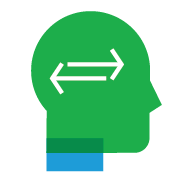Successfully navigating the AI-driven landscape demands a fusion of technical prowess and soft skills, along with the agility to adapt to the fast-changing environment. Software solution developers across organizations require a unique skill set to harness the full potential of these advanced technologies.
Understanding generative models
Understanding generative models is foundational. Developers need to comprehend the underlying principles of generative AI, the architecture of models like GPT-3, and how these models create data. This knowledge helps developers make informed decisions about model selection and customization for specific software applications.
Prompt engineering
Prompt engineering is a creative skill that involves crafting input queries or commands to generative AI models. Developers use prompts to guide the output generated by the model. Skillful prompt engineering is essential to obtain desired results and can be applied in various contexts, from natural language generation to code generation.
Programming languages (Python)
Python is the go-to language for AI and generative AI development. Proficiency in Python is vital as it’s widely used for AI libraries and frameworks. Developers need to write and modify code to integrate generative AI into their software solutions effectively.
API development and integration
API development and integration are essential skills for software developers. They allow developers to create APIs for generative AI models, enabling seamless communication between the model and the software application. This facilitates real-time interactions and the incorporation of AI-generated content into the application.
Cloud computing
Generative AI often requires substantial computing resources. Cloud computing platforms like AWS, Google Cloud, and Azure are integral for deploying and running AI models at scale. Developers need to understand cloud services and infrastructure to efficiently utilize cloud resources for AI applications.
Application monitoring
Application monitoring is crucial for maintaining the health and performance of software solutions powered by generative AI. Developers can use monitoring tools to track the application’s behavior, detect issues, and optimize performance. This is especially important when handling AI-generated content, as it ensures data quality and reliability.
Agile and Scrum methodologies
Agile and Scrum methodologies offer an iterative and collaborative approach to software development. These methodologies promote adaptability, which is valuable when integrating generative AI. Developers can efficiently manage AI model updates and fine-tuning, ensuring that AI components align with evolving project goals.
CI/CD
CI/CD (continuous integration/deployment) practices facilitate automated testing, integration, and deployment of software. For generative AI applications, this streamlines the deployment of updated AI models and features, reducing the time and effort required for model iteration. It ensures a more agile development process.
Secure model deployment
Securing the deployment of generative AI models is a critical skill. It involves ensuring that AI models are deployed and integrated into software applications in a way that safeguards against potential security risks and vulnerabilities.









 Behavioral Competencies
Behavioral Competencies Cognitive Competencies
Cognitive Competencies Coding Competencies
Coding Competencies Domain Competencies
Domain Competencies

























Would you like to comment?